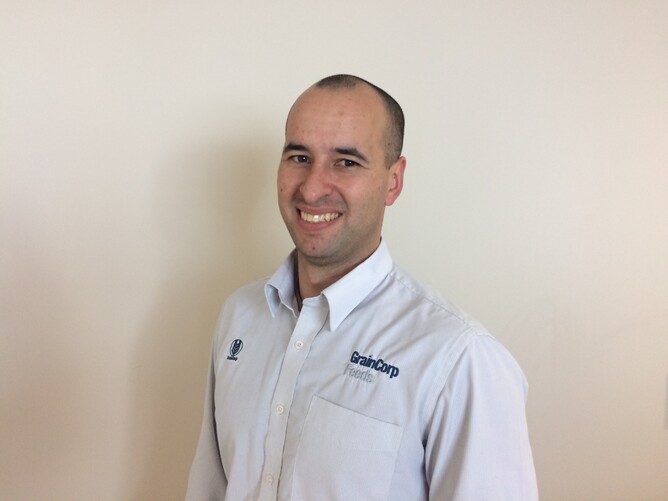Waikato dairy farmers may face challenges from pasture with low nutritional value as they head into Spring and balance date approaches, according to GrainCorp Feeds’ Technical Support Manager Glen McFarlane.
Now looking after the Wider Waikato region, Glen has been with the GrainCorp Feeds team for four years after spending 9 years in agri-business banking. Born and bred in the Waikato, he grew up on a farm and today, still relief milks cows on the weekend.
“We’re 15-20 days from when grass growth is supposed to meet feed demands,” says Glen. “The growth seems fine, but I think the nutritional value of our pastures could be low. We’ve had low sunlight hours this winter/autumn, which means sugar levels in the grass will have dropped. We can’t afford to have our herds undernourished.”
At this time of the season, the energy demands on a cow is at its highest. Energy spent during calving and pregnancy must be replenished if milk production is to be profitable. Glen’s main concern is making sure farmers’ herds are getting the calories they need to stay healthy.
“Each cow is running a marathon every day in terms of energy loss. Farmers have to put that energy back in. If a cow is 25 per cent down on calories, that energy has to come from somewhere else. If it isn’t from feed, it’ll be taken from the cow’s own system. In the end, the farmer will pay for it in dropped production and fertility.”
Glen can see solutions.
“I always start with an on-farm assessment. What is the demand on that cow? What does the farmer already have that we can use to help her? If extra feed is needed, there are products available to fill the energy gaps.
“At GrainCorp Feeds, we’re seeing a lot of ByPass Fats leave our shelves. They are calorie-dense foods that are absorbed directly into the cow through her intestines. She gets a needed boost without working for it.”
While farmers and bankers don’t always see eye-to-eye, Glen isn’t shy about making his financial background known.
“Even though I grew up with farming, I tell farmers about my banking background within the first conversation. It’s all about trust,” he says.
Glen is passionate about using his financial nous to help his farmer clients run a more profitable farming operation.
“Sure, farming is a lifestyle, but it’s also a business. Every farmer wants their business to be more profitable, and that’s where my banking experience can make a huge difference. I can analyse a farm’s financials at a deep level, which helps me pinpoint the real problems. And because I understand farming from the inside, I can help make a practical plan to fix the issues.”
When it comes to solving farm problems, Glen takes a sequential approach. It begins with listening.
“It’s about listening to the farmer, working out what the challenges are from the farmer’s point of view. Once I understand the issues, it’s about ranking them in order of timing and impact. What can we change right now that will help financially? What are the bigger problems we can deal with later? Sometimes it’s a combination; there’s a problem coming up in six months, but we need to do the right things now to set us up properly. If we don’t, the dominos fall badly.”
For Glen, the current calving period is a good example of this.
“If a farmer’s calving spread is too wide, it effects next year’s mating season. Let’s say some calves arrive two months late; that’ll mean up to 60 days of lost lactation next season. Farmers can lose a lot of money at the front end.”
Over the years, Glen’s knowledge of farming and business analysis has paid big dividends.
“With my financial background, I’ve been able to help farmers boost their returns. I had one client who had good production numbers. When the national average for milk solids was about 350 kilos per cow, he was doing 390. I wanted to see if there was room for improvement. So, we carefully worked through his performance figures and his on-farm situation. We made some changes and within three years, he was getting 555 kilos of milk solids per cow.
“I get a real kick out of getting results like that. It’s why I get out of bed every morning.”
